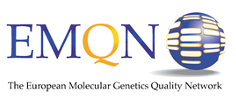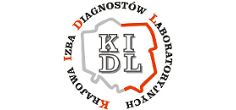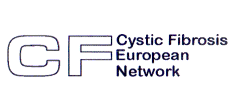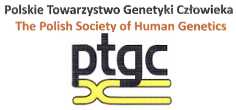Breast and ovarian cancer
 Right after diseases of the circulatory system, cancer is one of the most common causes of death in Poland. The most common cancer in women is breast cancer. About 12 thousand cases are diagnosed each year, and 5 thousand women die. Every tenth woman suffers from breast cancer due to an inherited predisposition. It is estimated that about 150 thousand Polish women are carriers of mutations that increase the risk of breast and ovarian cancer.
Right after diseases of the circulatory system, cancer is one of the most common causes of death in Poland. The most common cancer in women is breast cancer. About 12 thousand cases are diagnosed each year, and 5 thousand women die. Every tenth woman suffers from breast cancer due to an inherited predisposition. It is estimated that about 150 thousand Polish women are carriers of mutations that increase the risk of breast and ovarian cancer.
However, it should be remembered that breast cancer can also happen to men (although in men who are carriers of mutations in the BRCA1 or BRCA2 gene, the most common cancer is prostate cancer). Men can also pass it on to their children (both sons and daughters), who can pass it on to their children. It should also be emphasized that not all people who have been diagnosed with a mutation in genes that increase the risk of cancer necessarily get sick. They may be carriers who will not develop the disease. By performing a genetic test, appropriate prophylaxis can be applied in advance, reducing the risk of developing the disease.
Who should undergo genetic testing?
All women (and men, especially those with daughters) from high-risk families, i.e. those in which at least two close relatives have developed breast cancer and/or ovarian cancer, prostate cancer or other cancers.
Testing of the entire BRCA1 and BRCA2 genes (test code: BRCA-NGS) or a broad panel test (test code: FEM-NGS is recommended.
Basic testing (test code: BRCA1-1) should be performed by:
ü young women who intend to use hormonal contraception, if they have any changes in their breasts or ovaries,
ü women who have any changes in their breasts or ovaries, and who have a family history of breast cancer and/or ovarian cancer, prostate cancer or other cancers.
and also any woman who:
ü plans to start oral hormonal contraception or hormone replacement therapy
ü has started using hormonal contraception and intends to continue it
because these decisions result in an increased risk of cancer in women who are carriers of mutations in the BRCA1 or BRCA2 genes.
What is the benefit of genetic testing?
Molecular analysis of the BRCA1, BRCA2 and CHEK2 genes (a mutation in this gene increases the risk of developing breast and ovarian cancer, but also prostate and colon cancer. Test code CHEK2-1) allows for the detection of a genetically determined predisposition to developing breast and ovarian cancer. If a mutation is identified, you can:
· Use appropriate prophylaxis to reduce the risk of developing breast and/or ovarian cancer, even to 10% from 80% over your lifespan
Protective effects will include early birth, breastfeeding for at least 6 months, giving up hormonal contraception. You can decide to have children early enough and after procreation, consider surgical removal of the ovaries - this reduces the risk of developing ovarian cancer by 96% and breast cancer by 50% - and prophylactic mastectomy.
· Establish an individual preventive screening program that allows for earlier detection of cancer in the phase when it is completely curable.
Preventive screening for mutation carriers includes monthly breast self-examination, and from the age of 25 every six months: breast palpation by a doctor, breast imaging, gynecological examination with transvaginal ultrasound and CA-125 marker determination.
· Perform genetic tests on relatives and, if a mutation is detected, include them into the preventive care.








